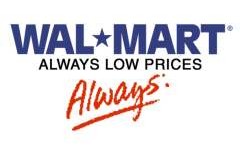 Fingerscans will replace credit cards
Fingerscans will replace credit cardsThat is, if companies like Pay By Touch have anything to say about it.
Pay By Touch, a closely held San Francisco outfit, specializes in biometrics, or the technology of identifying people by unique biologic traits -- not just fingerprints, but also irises, palms, and voices. And increasingly, those traits are being used in place of keys, credit cards, and even computer passwords.
Founded in 2002, Pay By Touch has signed up more than 2 million people willing to have their fingerprints used as a surrogate for checks and credit cards at more than 2,000 stores, including several large grocery chains. When making a purchase, a customer presses his pointer finger to a pad and then keys in an identifying number as an added security measure before his purchase is deducted from a checking account or added to a credit-card bill.
On Mar. 21, Pay By Touch said its device would be installed in all of Albertson's (ABS) Jewel-Osco stores, a chain of more than 200 outlets that combine supermarkets and pharmacies.
KEEP OUT. It's not just stores that are using biometrics. Elementary schools have installed iris scanners to keep out intruders. Companies increasingly use fingerprint scanners to authenticate computer users. And fingerprint readers have also been installed on locks for house and office doors.
Many consider Pay By Touch to be among the companies most effectively harnessing the rising demand for biometrics. Pay By Touch charges a set fee for each positively identified fingerprint that can run in the neighborhood of 15 cents for a big retailer, according to Pay By Touch President and Chief Operating Officer John Morris.
What's in it for the store? Using fingerprint scanners can accelerate purchase times by minimizing the checkout lane "fumble factor." Because a customer's Pay By Touch account can be linked to several payment devices, retailers can also save money by encouraging people to use accounts that incur lower fees, such as a checking account accessed by debit card. One east coast retailer projects savings of $3.2 million dollars on Interchange Fees thanks to their implementaion of PBT.
A recent report by Bernstein Research noted that systems like Pay By Touch could increase pressure on credit-card companies to reduce their charges to retailers so they don't lose market share.
BARGAIN ALERT. Supermarket owners overall say they're pleased with Pay By Touch results. "We'd like to encourage anybody who has a checking account to enroll in Pay By Touch," says Trisha Belisle, manager of retail technology at Cub Foods, a Midwest supermarket chain owned by Supervalu (SVU). She declined to comment on whether it saves the stores money, however.
Pay By Touch is also experimenting with using the system to customize bargains to individual shoppers based on their past purchases, a trick the Sunday newspaper circular could never manage. Advocates say biometrics is a better safeguard against identity theft than current methods. It's easier, after all, to obtain a credit-card number than a fingerprint or voice pattern.
Pay By Touch hopes to ride the wave as far as it can. In January it acquired rival BioPay for $82 million and recently closed on $60 million in capital from hedge funds and private investors. This came about three months after the company announced raising an additional $130 million. Morris declined to discuss sales or any plans the company might have to go public. But Pay By Touch expects to double sales this year from 2005, in part due to acquisitions.
ONLINE AMBITIONS. Morris says the company hopes to expand its services to include health insurance information. It also has an initiative that would let customers use fingerprints to make online purchases using the sensors available on some laptops. It plans to announce a participating online store later this year (see BW Online, "Promising Pitches at Demo 2006").
 "I believe it's going to ramp up," Frost & Sullivan analyst Sapna Capoor says of biometrics. "It's only a question of time before the Wal-Marts (WMT) of this world take it on." She expects more mega-retailers to adopt the technology within 18 months.
"I believe it's going to ramp up," Frost & Sullivan analyst Sapna Capoor says of biometrics. "It's only a question of time before the Wal-Marts (WMT) of this world take it on." She expects more mega-retailers to adopt the technology within 18 months.
